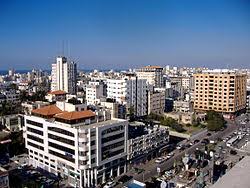Jerusalem
HALF OF ISRAELIS IN FAVOR OF REMOVING THE BLOCKADE ON GAZA: STUDY
By Itzhak Rabihiya
Academic Institute for Structural Reforms found blockade increase radicalization against
Half of the Israelis are in favor of removing the 12-year-long blockade on the Hamas-run Gaza Strip, a new study by the Academic Institute for Structural Reforms has found. The study, carried out by Panel Project, surveyed a sample of 608 Jews and Arabs, examining their attitudes towards Gaza and its economic situation in relation to violence, the effectiveness of Israel’s policy towards the Strip and possible solutions for the economic and humanitarian crises.
According to the study’s findings that was published today (13.6.2019) in the

The survey found that 65% of respondents view Hamas as responsible for the economic crisis, and another 7% blamed the Palestinian Authority and Mahmoud Abbas, while only 4% held
According to the survey, 51% of respondents believe that
As for who should take part in Gaza’s rehabilitation, 49% of respondents said they were in favor of Arab billionaires as part of Trump’s “Deal of the Century” while 45% said they supported collaboration between Israeli and Palestinian businessmen, which would help promote employment and commerce for both sides.
According to the survey, 29% of respondents said that Israel should help with the rehabilitation of the Strip “only if the effort is led by other countries”; 25% are against any Israeli participation but would not be opposed to other countries leading the effort; and 23% are opposed to any kind of assistance so long as there is no political settlement.
Only 11% are in favor of

“The studies prove that most Israelis recognize the need for rethinking the policy towards
“If the Israeli leaders would gather their wits and urgently promote the economic rehabilitation of
According to the survey, 60% of respondents acknowledged that poverty, unemployment and economic hardship increases the radicalizing effect on the population more than Israeli military operations.
“Our results still refute the claim that the blockade has turned public opinion against Hamas, and provide further evidence for the growing radicalization of Palestinians in
Hamas seized power over the 40-km.-long coastal enclave in 2007 and has gone to war with
Over the past 14 months, thousands of Palestinians have been taking part in violent weekly protests along the
The IDF believes that while Hamas is not interested in a long military conflict with
IDF officials have repeatedly said it is in
Stories for you more +